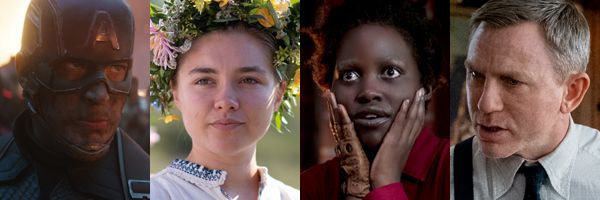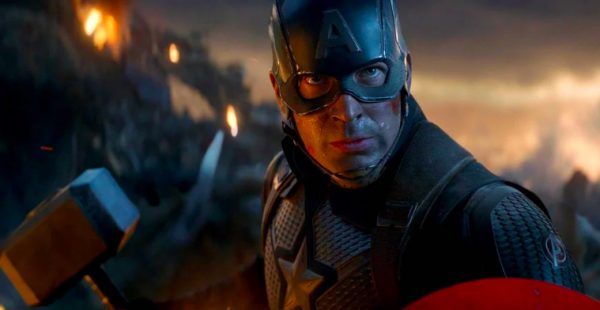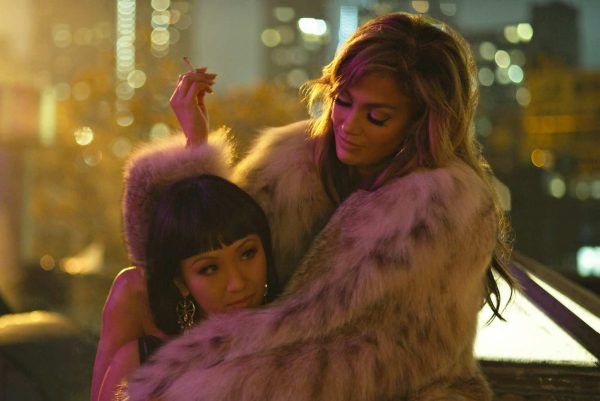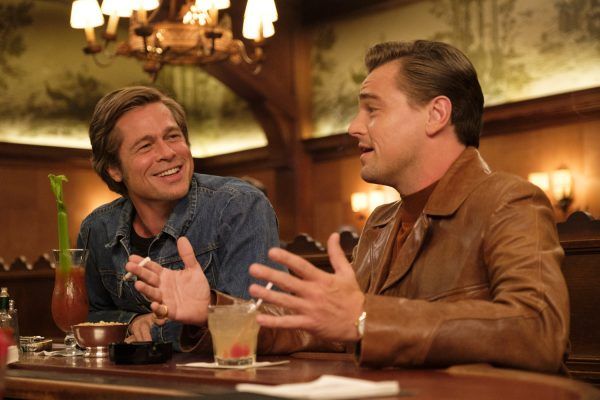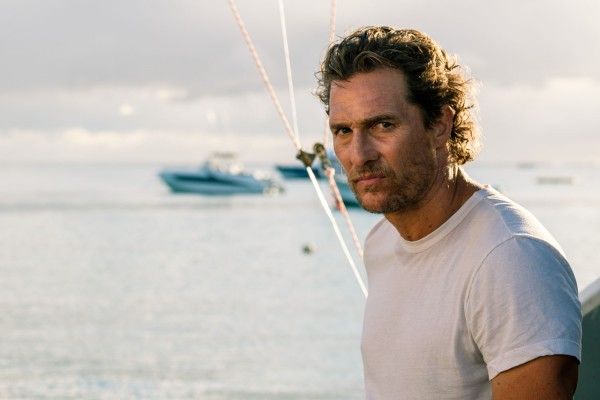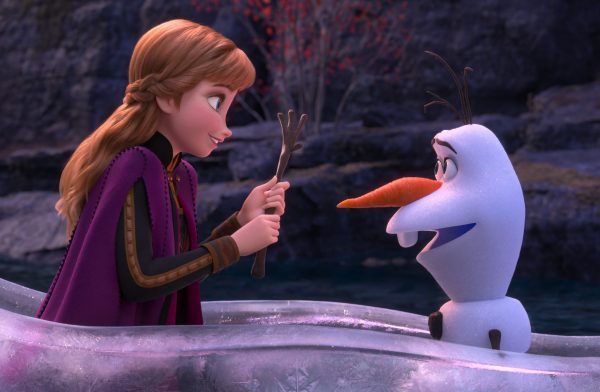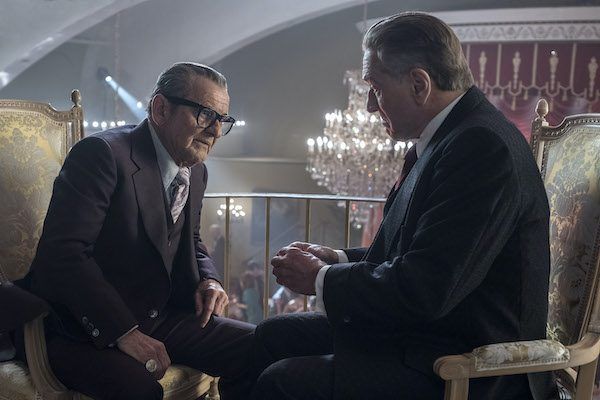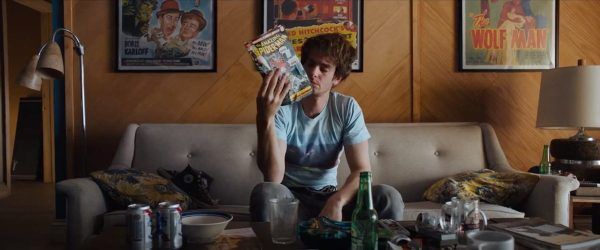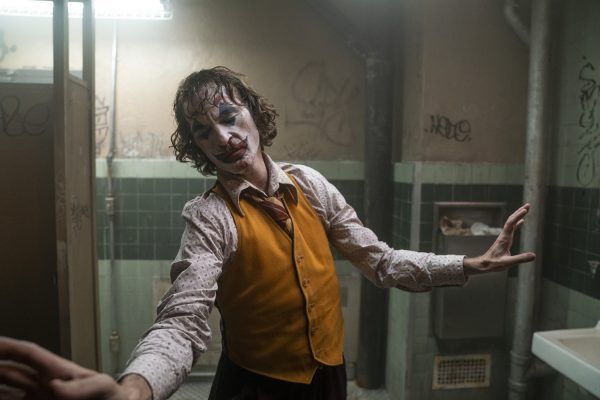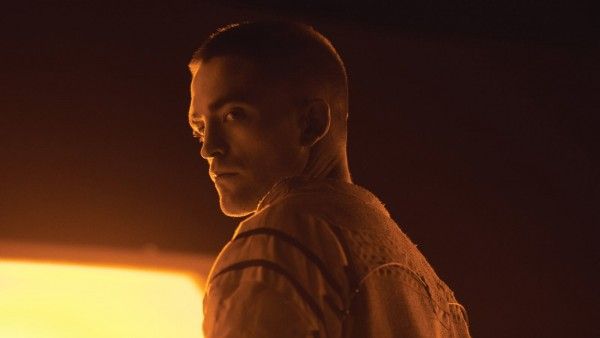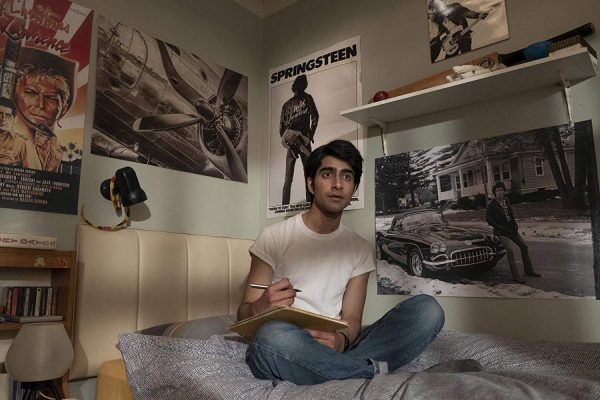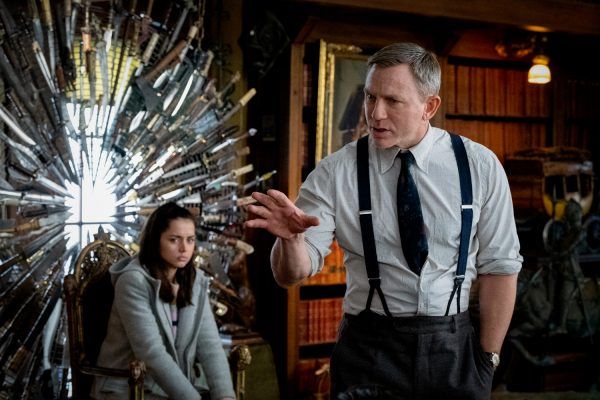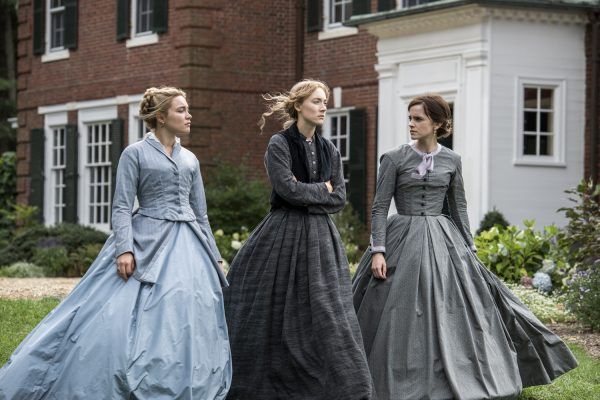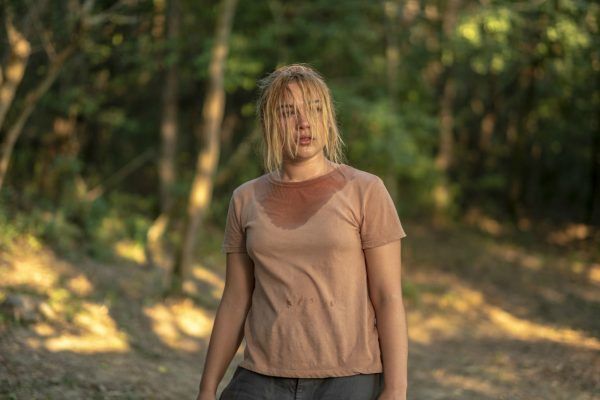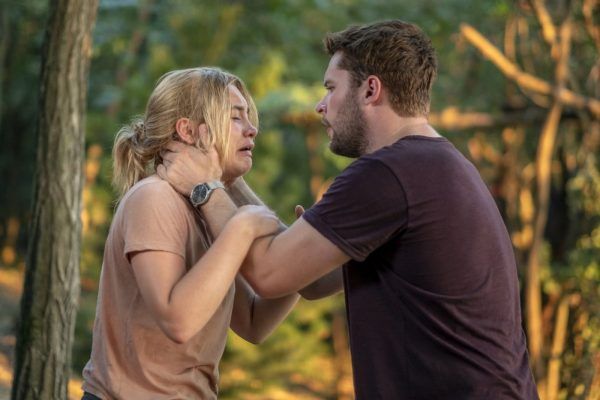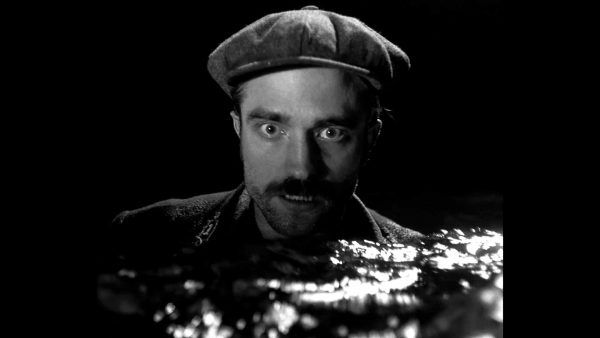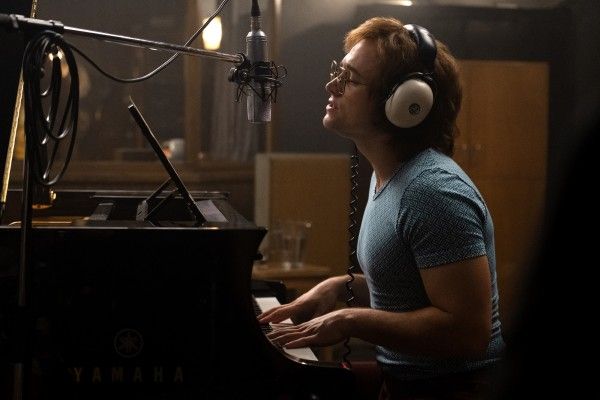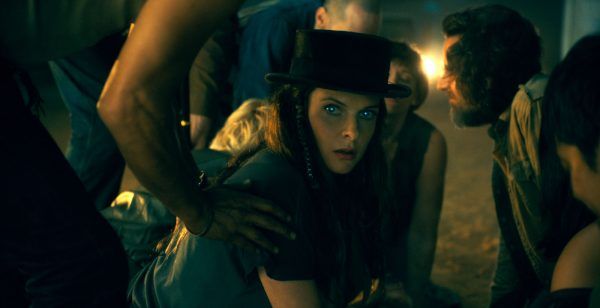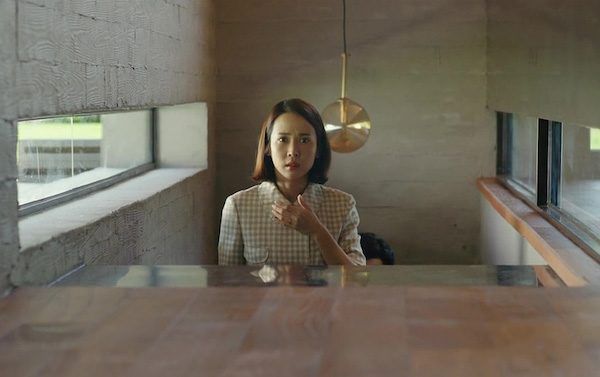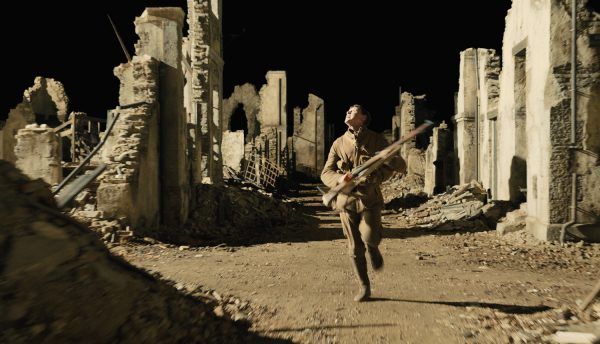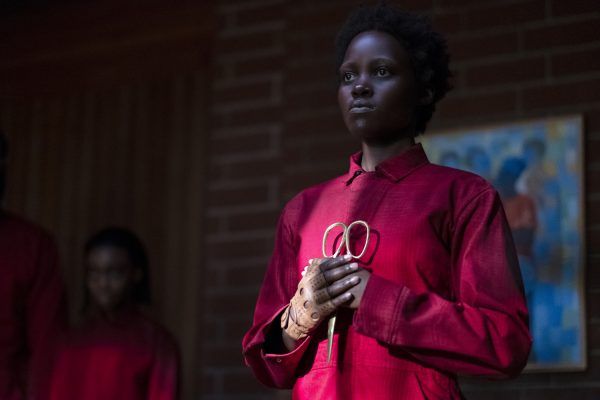2019 was a pretty great year for movies, and by extension memorable movie moments. While cinema is greater than the sum of its parts, there are still some truly iconic scenes or sequences that bury themselves in a viewer’s mind, and a filmmaker can only hope create a lasting image long after the credits have rolled. In 2019 that ranged from epic CGI battles to shocking twists to emotional climaxes, and we here at Collider thumbed through the best of the best to cull together a list of the most iconic movie moments of 2019.
Check out our picks below, and for more of our Best of 2019 content click here.
Avengers: Endgame - Captain America Lifting Mjolnir
It’s tough to pick a single standout moment in Avengers: Endgame, especially after I was told in no uncertain terms that “Every Single Scene with Fat Thor” was not an acceptable answer. But if I must pick a runner-up behind the God of Tubby Thunder and his delightful slippers-and-bathrobe combination, the obvious choice is the moment when Captain America (Chris Evans) lifts Mjolnir during the final battle with Thanos (Josh Brolin), confirming what we all already knew - that Steve Rogers is super frickin’ worthy. Cap snatches up that mythical hammer and absolutely wails on the Mad Titan. He tunes Thanos up so hard that Thor is basically like, “You know what? You go ahead and hang on to that hammer, I’ve got a new one anyway.” You don’t get many moments that make a totally packed audience literally shout with joy, and when the camera panned over to reveal Cap catching that hammer, the theater I was in erupted. That’s not just a “best of 2019” moment. That’s one of the all-time greatest. - Tom Reimann
Hustlers - J. Lo's Fur Coat
There have been countless articles dedicated to how Jennifer Lopez dominated 2019 and had the best year of her career -- one that might just lead to an Oscar thanks to her commanding, Zeitgeist-conquering performance in Lorraine Scafaria's Hustlers. Lopez is luminous and magnetic in the role of Ramona, the mamma bear of a stripper crew that turned to a dangerous and ill-fated con after the market crash took down their business with none of the safety nets afforded their Wallstreet customers.
Lopez commands the entire film, but her absolutely instantly iconic moment arrives in the film's first act when she's at the top of her game, embued with the full force of Lopez's superstar power. First, she dominates the stage with a mic-drop athleticism-meets-eroticism performance to Fiona Apple's "Criminal" (we were all reborn in the light of that heel!clack!) but it's when she shares a quiet smoke, in a glorious fur coat, that her radiant movie star energy most easily shines through. No shared emotion in 2019 as pure and delicious as the universal desire to crawl into that fur coat along with Constance Woo's destiny. Jennifer Lopez wears that coat like Marilyn Monroe wore diamonds and Rita Hayworth wore red curls; an all-time moment of movie glamour. -- Haleigh Foutch
Once Upon a Time in Hollywood – Cliff and Rick Watch FBI
Quentin Tarantino’s Once Upon a Time in Hollywood is about a lot of things, but the heart of the movie—for me at least—is a scene towards the end of the second act in which Rick Dalton (Leonardo DiCaprio) and Cliff Booth (Brad Pitt) watch Rick’s episode of FBI together. Their relationship is a unique one in which Rick essentially pays Cliff not only to be his stuntman, but to be his companion. He drives him everywhere, consoles him, and make sure he gets where he needs to be when he needs to be there. But as Rick sheepishly asks Cliff if he’d be interested in watching his episode of FBI with him, Cliff’s response melts your heart and underlines the true bond at the heart of their relationship. This is a genuine friendship, and Cliff is just so excited to watch his buddy on TV. The color commentary from the two as the episode plays out is the cherry on top of this bromantic sundae, but to me this scene best encapsulates their friendship—and underscores their actions at the end of the film. – Adam Chitwood
Serenity - The Twist Reveal
Yes, Serenity was an absolutely batshit movie and yes, I applaud you if you somehow managed to survive watching it in its entirety; it's no mean feat. This mostly comes down to the fact that, after spending more than an hour watching what feels like a steamy south Florida noir play out as fisherman Baker Dill (a Hall of Fame character name for sure and also played by Matthew McConaughey) battles over whether or not to kill the rich louse of a husband (Jason Clarke) married to his ex-wife (Anne Hathaway) after she comes to Baker seeking his help. Over the course of Serenity, some truly inexplicable things happen and the character motivations and actions feel...weird. Of course, things get even weirder when it's revealed the entire Baker Dill story is playing out inside a video game and this mission to kill one man is actually a storyline being written by Baker Dill's actual son who, in the real world, is trying to escape his abusive home life and the IRL Baker Dill is dead.
Trying to make sense out of why Steven Knight (Peaky Blinders), who wrote and directed, would do this to us, the audience who entrusted an hour and 46 minutes of our lives to him. The revelation that all of the action in Serenity had been taking place within the context of a video game created by a boy who was still actively coding it (an absolute aberration to the video game creation process) is beyond mind-boggling. While the reveal of it all happening in a video game explains away some things (Jeremy Strong's character is basically an avatar version of the game's rules and regulations so knowing the twist helps explain that particularly wooden performance), it's not so great a twist that it helps explain away of the inexplicably bananas things happening elsewhere. - Allie Gemmill
Frozen 2 – Olaf Recaps Frozen 1
For some, Frozen 2 was a mixed bag. But not when it came to Olaf’s (Josh Gad) complete recap of the events of Frozen 1. While it initially begins as a funny little gag, it soon becomes clear that Olaf is indeed going to recap the entirety of Frozen 1 to the fine folks who have been lost in the woods all this time, and it’s a hysterical bit made all the funnier by Gad’s spot-on vocal performance. – Adam Chitwood
The Irishman – “It Is What It Is”
I saw a few critics tweeting at each other “It is what it is” after the initial press screenings of Martin Scorsese’s The Irishman, and was initially a bit annoyed that maybe a key moment from the film had been spoiled. But it’s a testament to Scorsese’s filmmaking that you can’t really spoil The Irishman—the experience of watching the thing is really what matters, not the plot at hand. Still, when Robert De Niro’s Frank Sheeran relays to Al Pacino’s Jimmy Hoffa that Joe Pesci’s Russell Bufalino has come to a breaking point, that simple phrase—“it is what it is”—in the mouths of De Niro, Pacino, and Pesci becomes poetry. Their magnificent performances relay the gravity of the situation without actually having to say the words, instead letting the potential hit linger in the air like the smell of inevitable rain on the way. – Adam Chitwood
Under the Silver Lake - The Owl Woman
Under the Silver Lake isn’t really a horror movie, but the neo-noir black comedy thriller about the seedy underbelly of Hollywood’s elite class has its fair share of unforgettable moments. That should come as no surprise considering it was directed by David Robert Mitchell, whose breakout film It Follows was loaded with deeply unsettling imagery. Sam (Andrew Garfield) stumbles upon a macabre conspiracy hidden in plain sight in Los Angeles, centered around a mysterious group who regularly dispatch an assassin called the Owl Woman to kill anyone who gets too close to uncovering the truth. And folks, when Sam stumbles upon the explosively violent murder scene of one of his conspiracy-theory buddies and discovers the Owl Woman on the man’s home security footage, it scared the absolute shit out of me. Like, the “turn on all the lights in the house” kind of scared. The sequence is terrifying and surreal and possibly even supernatural, and it’s made all the worse by the implication that this absolutely won’t be the last time Sam sees the Owl Woman.
Joker - The Dance
For all its controversy, for all its dollars earned, for all its comparisons to the better Scorsese films of yesteryear, Joker is, at the end of the day, Joaquin Phoenix’s movie. It’s a character piece about a mentally unstable victim of circumstance who turns the tables on the world, embracing his madness and inspiring an ill-tempered revolution. If there’s one lasting image that prevails from the mega hit, it’s undoubtedly the slo-mo staircase dance. In full makeup and a red suit, Joker celebrates his lunacy, resolved to engage in one final murderous act before being committed. Everything in his life has been building to this moment, he seems to be communicating as he thrusts in abject glee. We, as the audience, are left with conflicting emotions. Our pitiful hero has become the villain, his transformation nearly complete. Joker’s dance is informed by his newfound joy, which stems from his envelopment by the diabolical. It’s disquieting to be sure, and it’s the film’s most impressionable scene. – Brendan Higgins
High Life - Fuck Box
Science fiction movies don't get more primal, biological, and downright horny than Claire Denis' wonderfully bizarre space drama High Life, which stars Robert Pattison as a stoic death row inmate sent on an experimental mission through a black hole on a ship full of fellow criminals. They're an odd bunch, but the biggest freak-flag-flying enthusiast of the bunch is Juliette Binoche's Dibs, a woman who committed who murdered her children on Earth and commits her time in space to create new life. She's got all kinds of mad scientist means to achieve that goal (there's a lot more semen in this movie than you might expect in a space drama from an arthouse legend,) but by far the most bizarre is the so-called "fuck box". And yeah, that's pretty much exactly what it sounds like. It's a box with a machine in it that people can, you know, fuck. Denis delivers a 3-minute sequence of Binoche's encounter with the box, shot with a raw, aesthetic eye for Dibs' contorting pleasure that has an almost ritual spirituality in its presentation. It's a shocking, beautiful, and base cinematic moment; a celebration of her characters' pleasure and pain that's dripping in all the emotional and physical viscera of humanity. -- Haleigh Foutch
Blinded By the Light - Javed Hears Bruce Springsteen for the First Time
As a New Jersey native who pretty much accepts the discography of Bruce Springsteen as an organized religion, I often struggle to explain just what particular magic that music has over a person. But woo boy, Blinded by the Light did a pretty great job, especially the scene in which Javed (Viveik Kalra) throws his poetry out the window and pops “Born in the USA” into his cassette player for the first time. A lonely Pakistani immigrant living in 1980s England, Javed literally sees the lyrics float around him, the first words he can relate to in a long, long time. Director Gurinder Chadha plays with magical-realism to show the way music can bend reality, as the timid Javed strides through a lightning storm with his headphones on, the words to “Promised Land” following him on the wall as he scoops his windswept poems back into a pile. It’s gorgeous, and a perfect visualization of what the film wants to say about finding connection in a world that seems determined to take your own voice away from you. -- Vinnie Mancuso
Knives Out - The Donut Hole
It’s not your typical whodunnit for a myriad of reasons. Not only do we learn a whole lot more information about the nature of our victim’s demise in the first act, but there's one very particular detail plaguing our much renowned detective that separates Knives Out from others of its ilk. Who did the deed is not what Daniel Craig’s Benoit Blanc wants to know. Rather, who hired him is the mystery in his mind. And the answer to this question is the key to bringing sense to this most unusual case. To Blanc, a missing puzzle piece is like a hole in a donut that needs filled. And when he finally thinks he’s got it, exuberantly creating a verbal donut/donut hole metaphor that has become the film’s most talked about bit of dialogue in a script rife with clever exchanges, Knives Out assumes its place as one of the decade’s most riotously funny films. When we all do our best Blanc impressions in the years to come, it’s donuts we’ll be talking about. – Brendan Higgins
Little Women - The Ending
I won’t dare spoil the ending of Greta Gerwig’s Little Women for those who haven’t seen it yet (it opens Christmas Day—see it!), but suffice it to say the Lady Bird filmmaker finds a new way to recontextualize Louisa May Alcott’s classic novel as something fresh, fitting, and wildly emotional. The entire film is something of a masterwork, as Gerwig reinvigorates this story of childhood vs. adulthood by intercutting between the story’s child-set and adult-set scenes as opposed to bisecting the narrative. – Adam Chitwood
Midsommar - The Opening Scene
Pound for pound, minute for minute, the opening of Ari Aster's Midsommar is the scariest movie of the year. While Midsommar ultimately wound up being quite a counterstatement to Aster's breakout debut Hereditary, all sunshine and wide angles set far, far away from home, the film's opening takes mere minutes to drop us back into the pits of grief and dread he spent acts establishing in Hereditary. Setting up the impossibly tragic origin of Dani's grief (and setting the stage for the extraordinary performance from Florence Pugh,) It's a walloping opening scene that firmly sets a grim tone for the dark comedy to follow and warns the audience: don't let the sunny florals fool you, Aster still has his grim set of tricks up his sleeve. -- Haleigh Foutch
Midsommar - The Final Scene
When I think "emotional catharisis in 2019," I think about the ending of Midsommar. Director Ari Aster's depiction of a relationship on the fast track to break-up during a midsummer celebration trip to a remote Swedish village was as beautiful as it was terrifying. The film follows Dani (Florence Pugh), her boyfriend Christian (Jack Reynor), and Christian's friends Mark (Will Poulter) and Josh (William Jackson Harper) on a trip to celebrate midsummer in a remote Swedish village. As the tension between Dani and Christian grows, we watch as the various and somewhat sinister midsummer traditions of the village play out. After watching Dani spend a majority of the trip minimizing herself as well as any possible problems she might be having (and the sudden murder-suicide of her parents and sister certainly qualifies as a problem) around Christian and his friends, it's all clicks into place. Dani becomes the May Queen and is thus embraced the the villagers as one of their own as Christian pulls away from her completely.
In the final midsummer tradition, Dani gets to choose who will be the final humans sacrifice (other characters disappear throughout the movie and you realize they are the other sacrifices): Christian or a villager chosen at random. Dani's delicious revenge for Christian's awful treatment of her comes in the form of her not just choosing Christian, but watching Christian get sewn up into a bear's carcass and then burned alive with the other sacrificed bodies. Pugh helped make the moment especially iconic in that moment as she conveyed Dani's transition from horror at the impact of her choice into full-tilt glee she was finally free of her terrible, gaslighting boyfriend. I'd also be lying if I said it didn't feel somewhat good to see the horror dawn on Christian's face as he realized he was going to be burned alive. The entire moment encapsulates how break-ups can be messy, tough, and freeing. As visceral as it was symbolic about doing away with toxic people in your life, the ending of Midsommar was truly a thing of beauty. - Allie Gemill
The Lighthouse - Robert Pattinson Finally Sees the Light
Robert Eggers’ Lovecraftian sea-shanty nightmare The Lighthouse is one of my favorite movies of 2019, mostly because how aggressively goddamn weird it is. But if you endure all two hours of mermaid masturbation, blackout drunken rages, and mysterious tentacle sightings hoping to find some answers, you’re going to get burned. Much like Robert Pattinson’s Ephraim Winslow, who ascends to the top of the lighthouse tower to see the glowing orb that Willem Dafoe’s Thomas Wake has denied him the entire movie. We never see what Ephraim sees, though, never learn the incomprehensible truths hiding in that illumination. Instead, Eggers keeps the camera on Pattinson’s face, which slowly glows and glows until it’s basically a photo-negative of a screaming human skull. It’s one of the most jarringly mystifying movie moments I’ve ever seen in a theater, a combination of myth and magic that warns not to ask too many questions of things humans were never supposed to fully understand, like the ocean or Willem Dafoe’s stale lobster farts. --Vinnie Mancuso
Rocketman - Crocodile Rock
The Elton John jukebox musical-esque Rocketman is a beautifully-imagined new kind of biopic which featured lots of exuberant and transcendent musical sequences. Among the most memorable is the one where Elton (Taron Egerton) sings "Crocodile Rock" in a make-or-break performance in Los Angeles. After time devoted to Elton finding his voice, getting his foot in the music industry door, and teaming up with Bernie Taupin (Jaime Bell), the pressure in on for Elton to be a big success in the U.S. What makes the moment so iconic comes down to both Egerton's embodiment of John's on-stage energy but also director Dexter Fletcher's depiction of the moment. What begins as a fairly standard scene of a singer performing in a crowded club transforms into something dreamlike. As Elton connects with his audience and they begin to dig the vibe he's laying down, their excitement in physicalized in everyone, including Elton, floating up into the air. Suddenly, the tempo and mood of "Crocodile Rock" changes and for a brief moment, time stands still as it dawns on Elton he's actually doing it: He's a real performer and he's a star. - Allie Gemmill
Doctor Sleep - Bye Jacob Tremblay
Mike Flanagan is easily one of the best horror directors currently working, and while his adaptation of Stephen King’s sequel novel Doctor Sleep ultimately disappointed me, the director’s trademark excellence shines through in several spots (pun relentlessly, unapologetically intended). The most unforgettable part of the film, however, is when Rose the Hat (Rebecca Ferguson) and her gang of psychic vampires abduct a little boy and torture him to death. To call the sequence “upsetting” would be a massive understatement. It made me physically uncomfortable to the point where I felt like what I was watching must be illegal. It was disturbing on a primal level, and I was upset about it for the rest of the day. Even as I write this, almost two months after seeing it, I can recall every unpleasant detail with punishing clarity. If that isn’t effective horror, I don’t know what is.
Parasite - Ending
Most of Parasite's runtime includes some kind of iconic moment or another, from Jessica's wildly catchy con ditty to the peaches the knock-your-socks-off mid-film reveal and that darn rock, but nothing hits harder or endures longer than the films final moments. Bong Joon Ho's genre-bending thriller is rich with commentary on and criticism of what he's gone on to describe as the universal "country of capitalism", all of which is rooted in a fascinating and unpredictable story about people desperately trying to claw their way into a better life, and he wraps it all up in the film's heartbreaking final moments -- a fantasy of hope the face of Sisyphean inequality that Director Bong brutally smacks down in the final frames. It's cruel only because it's so honest, a rebuke of realism in the midst of Parasite's heightened tragi-comedy that proves more haunting than a horror movie. -- Haleigh Foutch
1917 - The Night Run
All of 1917 is impressive. Every moment I was wondering, “How did they do that, and how many times did they fail before they were able to get it right?” But the scene that struck me the most was Schofield’s run through a destroyed town at night. Only fire and flares light the scene. Shooting at night is tough enough as it is, but cinematographer Roger Deakins didn’t have the benefit of edits for his lighting. He needed to make sure that somehow the entire scene would be lit well enough without a cut and while director Sam Mendes was moving through the action. The end result is a truly haunting visual where we feel just as scared and frantic as Schofield, hoping to find the next light to find our way to safety. – Matt Goldberg
Us - The Final Twist
It’s too abstract to be considered in the same class as Get Out, but Jordan Peele’s sophomore effort, Us, has quite a few jarring moments that occupy your mental space long after the credits roll. The first time the underground doppelgängers arrive outside the home of our heroes, the brutal attack on the neighbors, the man on the beach. However, for all its character work and weird world building, the story’s ultimate twist is undoubtedly the most indelible choice Peele makes. It’s what elevates Us to another level in the home invasion genre, if that’s even a fair assessment of what it is. The move is a bold one. It very likely disrupts any ideas of a sequel, but more importantly, it proves that turning a protagonist into a villain in the closing minutes does not upend a movie. Rather, it resonates more than something conventional would have. And defying convention can separate a good artist from a great one. – Brendan Higgins

